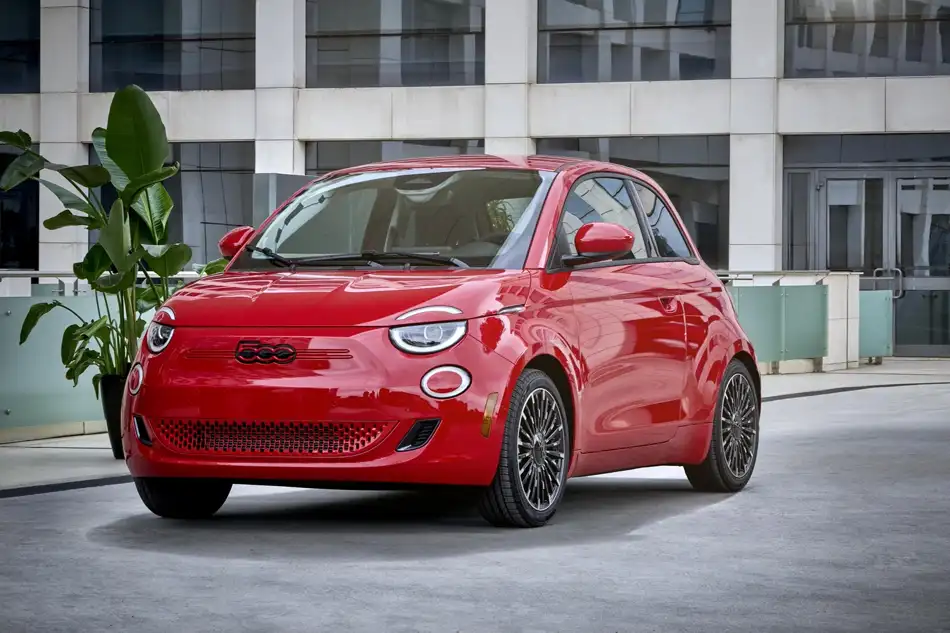December 2023 was a significant month for the electric vehicle (EV) industry, with several noteworthy developments and news stories making headlines. The December 2023 EV news covered a range of topics, from updates on Tesla’s charging standard to discussions on the impact of rising repair costs for electric cars after a collision. In this article, we’ll take a closer look at some of the most significant events and milestones from the end of 2023 to provide a comprehensive overview of the state of the EV industry.
US Auto Companies Delay EV Spending Plans Due to Cooling Buyer Interest
The Wall Street Journal reports that as customers in the US hesitate to switch from traditional gas-engine vehicles to electric vehicles, some auto companies are delaying plans on EV spending. This is due to the relatively high prices of EV models, which has caused a cooling buyer interest, resulting in EVs piling up on dealer lots. However, car executives remain confident that sales will accelerate as additional lower-priced models come out and the availability of public chargers improves. Sales of electric models rose faster than the car market as a whole in the first 11 months of the year, but at a slower pace than in previous years.
The Challenges and Opportunities for EV Adoption in Meeting the Paris Agreement’s Target
According to a recent Reuters article by Laura Sanicola, the International Energy Agency (IEA) has stated that electric vehicle sales need to make up 70% of the automotive market by 2030 in order to meet the Paris Agreement’s target for limiting global warming. However, it is uncertain whether EV sales can reach that level. Moreover, some major EV makers such as General Motors, Ford, and Stellantis have delayed or cancelled production plans due to rising labor costs and slowing growth in the United States.
The rate of future EV adoption depends heavily on pricing and the availability of charging stations, and China currently holds an advantage in both. While the average EV price in China is around $33,964, the average price in the United States is over $53,000. Additionally, China has far more public charging stations than the United States. Nonetheless, EVs are expected to make up around 50% of new U.S. car registrations by 2030 as drivers are attracted to the improving technology, falling prices, and the prospect of avoiding high gas prices.
Volkswagen Group to Adopt Tesla’s Charging Standard for Future EVs in North America
Volkswagen Group has announced that it will adopt Tesla’s North American Charging Standard (NACS) for its future EVs, including Audi, Porsche, and Scout Motors brands, starting in 2025. The automaker was one of the last to embrace the NACS EV plug in the United States, with its own charging network, Electrify America, announcing plans to adopt NACS last year. The move follows other automakers like Ford, GM, Rivian, Honda, Mercedes, Hyundai, Kia, Toyota, and Subaru that have already announced their plans to leverage Tesla’s charging standard. Stellantis, the parent company behind brands like Jeep, Ram, Chrysler, and Peugeot, is still evaluating the charging standard.
Expensive Repair Costs for Electric Vehicles Following a Collision
Electric vehicle owners are discovering a new downside to their eco-friendly cars: expensive repair costs following a collision. According to CCC Intelligent Solutions, repairing an EV after a crash costs an average of $6,587 compared to $4,215 for all vehicles. EVs have high costs due to their complexity, the requirement for replacement parts, and the scarcity of trained mechanics to repair them. Although EVs require less maintenance than gas-powered cars, the higher repair costs may surprise new EV owners. Rental car company Hertz Global Holdings reported that repairing their electric fleet, mainly consisting of Tesla vehicles, contributed to decreased profits during the third quarter.
Tax Credits for EVs with Chinese Parts Set to Disappear, Affecting Sales and Pricing
EV shoppers are in for a surprise as all tax credits for electric vehicles (EVs) with Chinese parts are expected to vanish. This could affect sales and pricing of a range of Tesla models and some Ford Motor EVs. On Wednesday, Tesla’s website stated that the rear-wheel drive and long-range versions of its Model 3 would lose all of the $7,500 federal purchase tax credit on December 31, contrary to the company’s earlier guidance that suggested buyers of its EVs would still get at least half of the tax credit on those models.
The changes to the credit qualifications for EVs were made as part of the Inflation Reduction Act passed in 2022. Various factors, such as the location of vehicle, battery, and battery parts manufacturing, determine the eligibility for tax credits. The federal government considers China a country of concern as it produces roughly 50% of EVs, 75% of batteries, and 50% to 75% of key battery materials. According to Al Root of Barron’s, the changes will cause a disruption in pricing.
Stellantis to Launch Fiat 500e in North America in Q1 2024
According to a Reuters report by Giulio Piovaccari, Stellantis has announced that it will begin selling the fully-electric Fiat 500e in North America in the first quarter of next year. This marks the first retail offering of the battery electric vehicle (BEV) in the region. The car has an estimated range of 149 miles and is manufactured in the Mirafiori complex in Turin, Italy. The suggested selling price of the Fiat 500e in North America is $32,500, with a further $1,595 in delivery costs.
The Future of EVs Looks Promising
In conclusion, December 2023 EV news highlights the continued growth and evolution of the electric vehicle industry. While there are still challenges to overcome, major automakers are taking steps to make charging more accessible and affordable for EV drivers. With these advancements and innovations in the industry, we can expect to see even more exciting developments in the year ahead.
